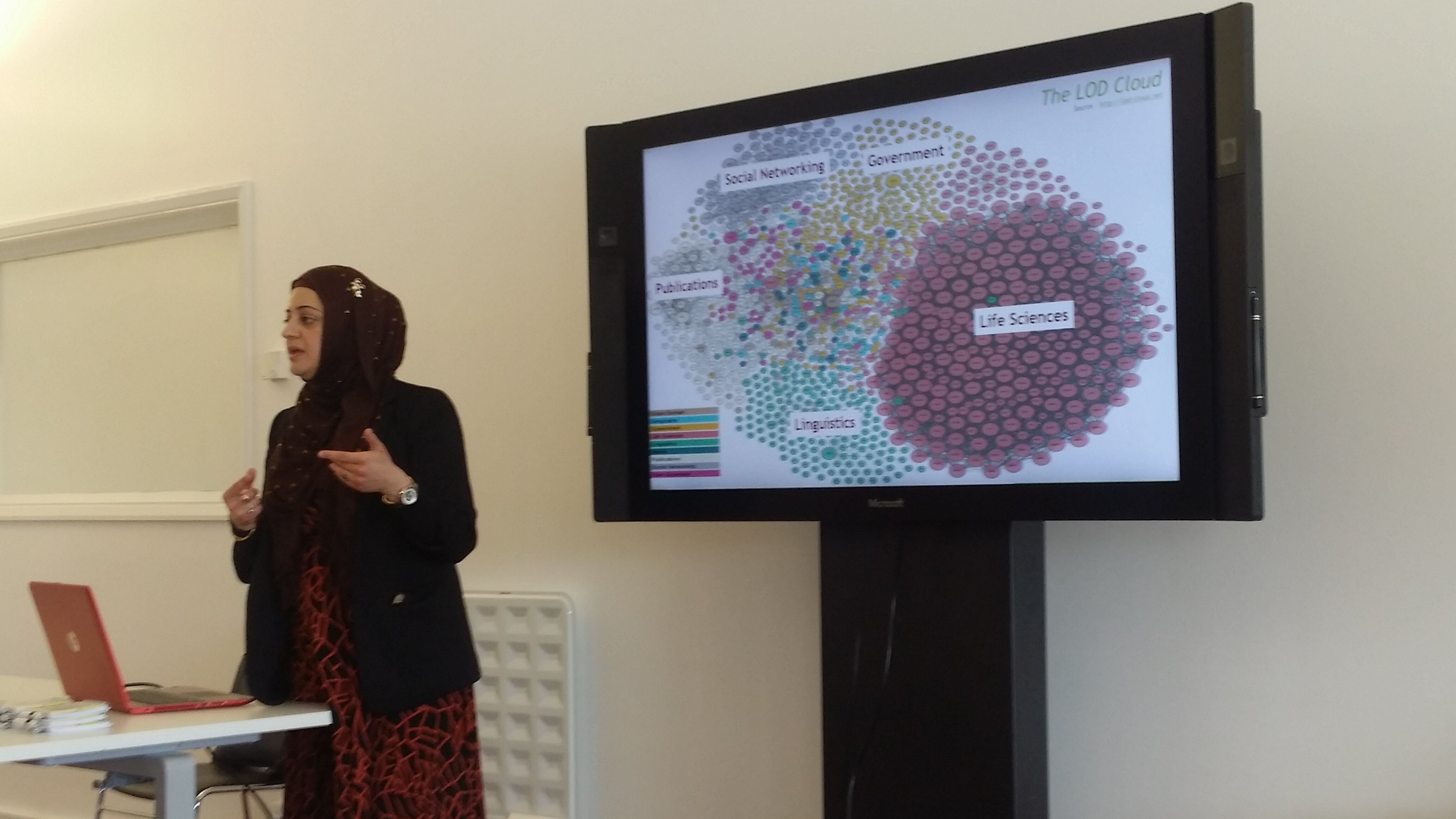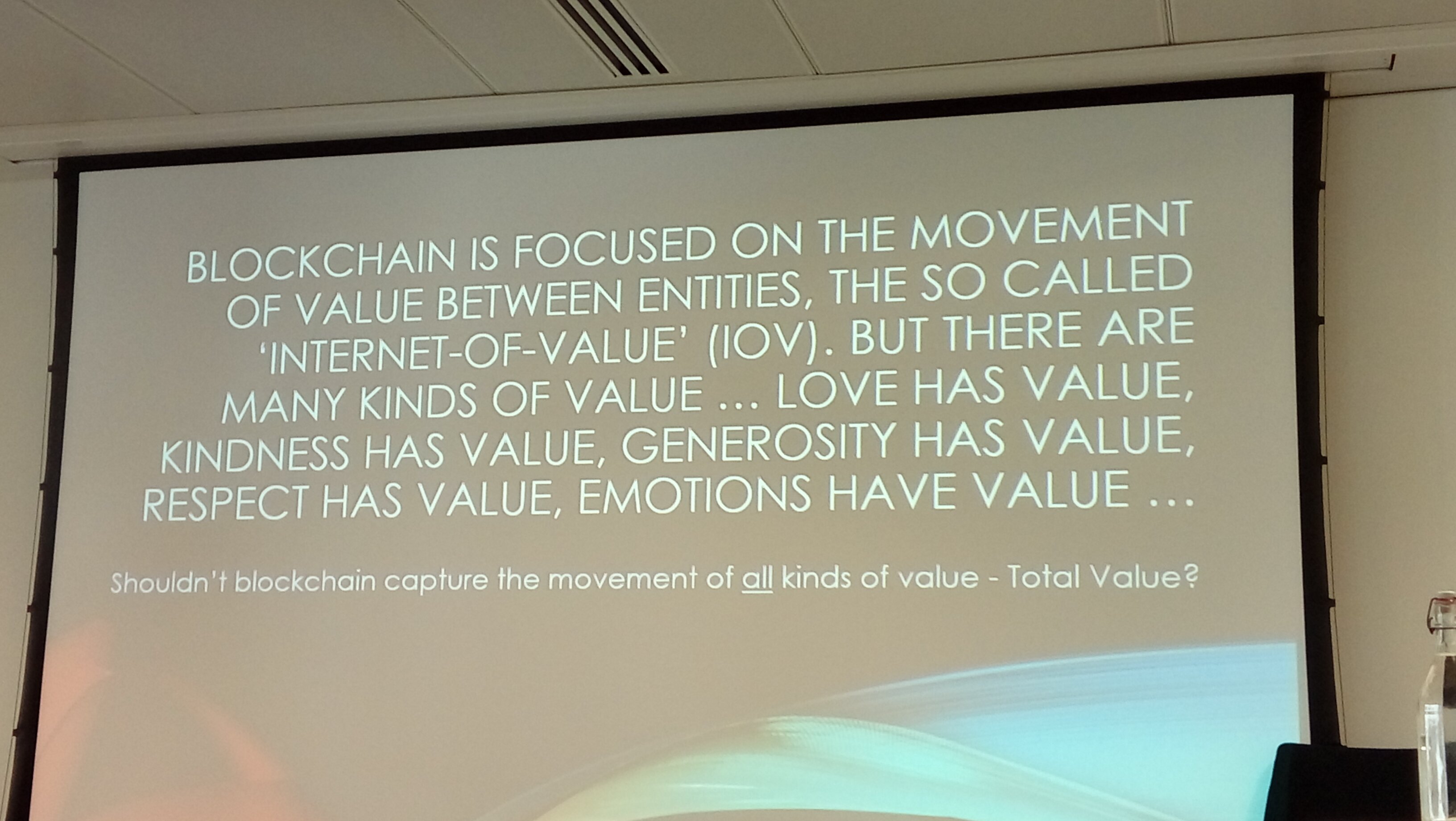CoDE attended the latest industry-led research colloquium in Business Analytics recently, presented by data analytics expert Dr Aisha Naseer of Fujitsu Laboratories of Europe (FLE) Limited and Sahara Innovations Limited.
The ‘data deluge’ is overwhelming organisations’ and institutions’ capacity to tackle, manage and transform the sheer volumes of data at play, without compromising the efficiency of their business processes and corporate actions. Current approaches to analytics are slow and superficial, which hampers development of truly intelligent business applications that would make fuller use and sense of all the relevant data available. Dr Naseer is Research Director at Sahara Innovations, a start-up spearheading cross sector projects in data research and analytics that’s aiming to take the next step.
Access rights are driving a growing trend towards making more data publicly available, and the ‘Linked Open Data Cloud’ network is making this data more and more searchable. The baseline aim of analytics is to turn a meaningless parade of data into knowledge, understanding, and ‘actionable insight’ — but for Dr Naseer, the real goal is taking actionable insight to actionable outcome: ‘After predictive analytics comes prescriptive analytics,’ she explained.
What’s an actionable outcome?
- In the Public Sector, Dr Naseer discussed Sahara Innovations’ project to detect fraudulent benefit claimants by using children’s schooling information to cross-pollinate the data sets. This led to her team being able to advise that certain claims NOT be released because the data had proven a disconnect between children’s school location and the property being claimed for.
- Applying information on the cycles of the moon to data about teen suicide attempts revealed an unexpected correlation, and the healthcare sector was able to enhance and tailor its response accordingly. ‘Some of this data was open,’ Dr Naseer emphasised, ‘and in this way we can see the power of open data.’
Another dimension is looming: that of data protection and security. This constraint is set to grow with the EU General Data Protection Regulation (GDPR) that will come into force on 25th May 2018. This law – and it is a law – will replace the Data Protection Act of 1998, and it will impact all of us, whether in or out of the EU. ‘Privacy by Design’ is one of the key features of this legislation, affecting any new innovations or applications in data research. Upon Brexit, the UK actually becomes a ‘third party’ in this context, and even stricter regulations will thereby apply.
Hosted in the Business insights Lab by the Surrey Business School’s Department of Business Transformation and Sustainable Enterprise, this colloquium series connects industry with academia for high-level discussion of the challenges of business analytics in the real world. Sharing cutting-edge technologies, tools, methods and processes in business analytics and data science enables in-depth exposure to research trends in the industry. For more information, contact Professor Lampros Stergioulas at .






